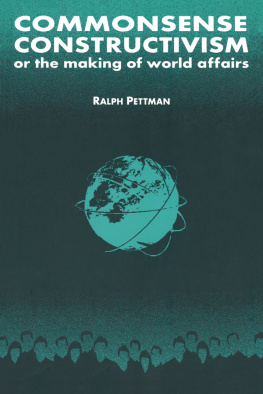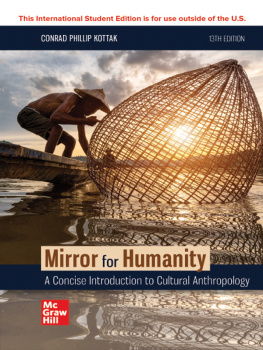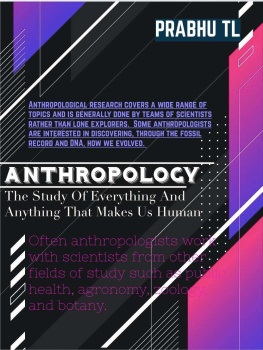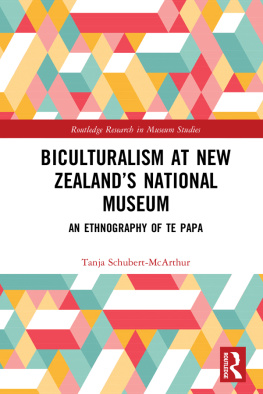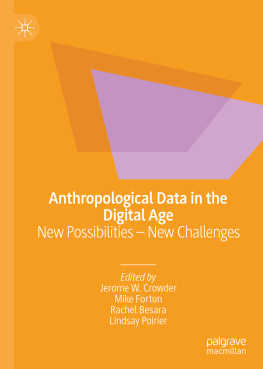Here
Comes
Everyone
Anthropology
and World Affairs
Here
Comes
Everyone
Anthropology
and World Affairs
Ralph Pettman
Hitotsubashi University, Japan
Published by
World Scientific Publishing Co. Pte. Ltd.
5 Toh Tuck Link, Singapore 596224
USA office: 27 Warren Street, Suite 401-402, Hackensack, NJ 07601
UK office: 57 Shelton Street, Covent Garden, London WC2H 9HE
British Library Cataloguing-in-Publication Data
A catalogue record for this book is available from the British Library.
HERE COMES EVERYONE
Anthropology and World Affairs
Copyright 2017 by World Scientific Publishing Co. Pte. Ltd.
All rights reserved. This book, or parts thereof, may not be reproduced in any form or by any means, electronic or mechanical, including photocopying, recording or any information storage and retrieval system now known or to be invented, without written permission from the publisher.
For photocopying of material in this volume, please pay a copying fee through the Copyright Clearance Center, Inc., 222 Rosewood Drive, Danvers, MA 01923, USA. In this case permission to photocopy is not required from the publisher.
ISBN 978-981-3209-18-3
Desk Editor: Sandhya Venkatesh
Printed in Singapore
The vastest things are those we may not learn.
We are not taught to die, nor to be born,
Nor how to burn
With love.
How pitiful is our enforced return
To those small things we are the masters of.
Mervyn Peake
Preface
Here comes everybody is the name of a character in a novel by James Joyce. It is recast in the title to this book to read here comes everyone as a way of referring to the cultural context to world affairs. If this sounds ambitious, thats because it is. Happily theres help.
Why everybody? Why everyone?
Because theres a gap in the literature on world affairs (or international relations or IR) where studies of culture ought to be. I found this gap after mapping the many ways in which the discipline is described and explained. I found four. The first was religion. I wrote a book about that but only after 9/11. By then it had many competitors. The second and third were phenomenology and psychopathology. Very few analysts or leaders talk about either so I wrote books on both. The fourth was culture.
There are many works on aspects of this issue. They include a number of well-known ones on civilization and the like (Needham, 1969; Chay [ed.], 1990; Ogura, 1993; Lapid and Kratochwil [ed.], 1996; Huntington, 1996; Dallmayr, 2002; Reeves, 2004; Blondel and Inoguchi, 2006; Lebow, 2008; Cauquelin et al., 2013 [1998]).
Not one of them looks at all earths people and how they live, though. Not one of them, for example, confronts the significance of scientific modernity world-wide as well as the cultural reactions to it.
I didnt respond at the time. Id run out of steam.
When I recently decided to give it a try I turned to the cultural anthropologists. They look directly at people in society. It is their work that inspired the table of contents and what it contains.
In exploring how cultural anthropology applies to world affairs I became very aware of the extent to which IR objectifies. It is very detached.
Analysts and policy-makers consider all forms of involvement, from the self to whole systems, but they do so from above. They look top-down.
Cultural anthropologists, by contrast, try to understand the world from the bottom-up. They consider both ordinary people and elites and they compare whole societies but regardless of the subject they are always engaged. They always ask the basic ethnographic question: Who are these people and what do they want? This allows them to get close to listen and take part.
Looking bottom-up is not, in other words, about socio-cultural location. It is about the way in which the research is done.
This difference between detachment and engagement informs all that follows. It is referred to throughout.
A postscript: Why did I decide to proceed? Because like a distant massif the missing mountains the topic represents kept calling me to climb them. As a result here I am again with my mental ropes and pitons and my less-than-firm resolve.
Another postscript: Why is the book written the way it is? I once asked a colleague why hers were so interesting. She told me she kept a photo of a friend next to the desk and always wrote as if it were to her. This was very good advice. As best I can I follow it now. So welcome friend. Here we all come.
About the Author
Ralph Pettman currently teaches at Hitotsubashi University in Tokyo. Before that he was a professor of international relations at the University of Melbourne.
His first degree was from the University of Adelaide. His PhD was from the London School of Economics and Political Science.
His academic appointments have included teaching posts at the universities of Oxford, Princeton, Tokyo and Sydney. He has also done research at the Australian National University, Cambridge University, the New School for Social Research (New York), the School of Oriental and African Studies (London), the Frankfurt Peace Research Institute and Sciences Po (Paris).
For some years he was a senior bureaucrat. He served several government agencies including Australias human rights commission, foreign aid bureau, and broadcasting commission (Moscow), as well as the United Nations human rights commission (Geneva).
Among his recent books are Psychopathology and World Politics (World Scientific, 2012); World Politics: An Analytical Overview (World Scientific, 2010); Intending the World: A Phenomenology of International Affairs (Melbourne University Press, 2008); Reason, Culture, Religion. The Metaphysics of World Politics (St. Martins Press, 2004); and Commonsense Constructivism, or the Making of WorldAffairs (M. E. Sharpe, 2000).
Contents
Introduction
The Introduction is longer than the chapters that follow. There is a reason for this. It not only sets the stage by briefly discussing both world affairs and anthropology. It also puts in place some of the scenery by briefly explaining what anthropology contributes to world affairs and what each of the chapters tries to do.
What is World Affairs?
Any computer connected to the Internet can now be used to view images of the earth taken from orbit. During the day these images stand out against the blackness of space. There are blue oceans, brown-and-green continents, and white clouds (Wall, 2014). At night they show the golden lights of the cities. Half of earths people live in these now (NASA,
2000).
What such a computer image does not show are nations, factories, farms, or states. Or workers being exploited by owners and managers. Or globally important ideas, values and norms. Or the way the priority given to the use of reason pushes particular people to the global periphery, for example, women, environmentalists, and the poor. Or the limits to peoples ways of knowing that prioritising the use of reason creates. Or the various attempts made to compensate for these limits.


